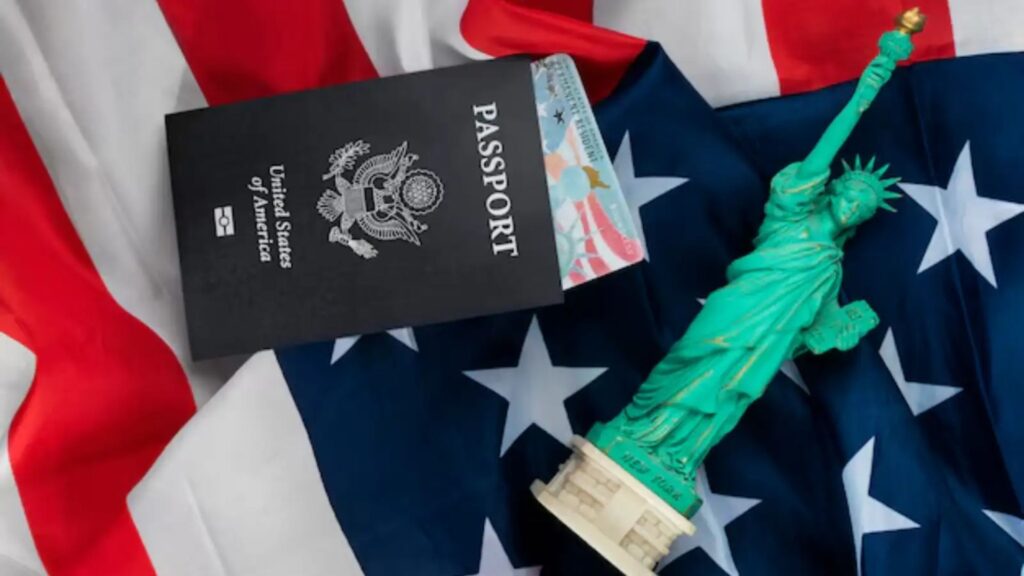Thousands of Indian students preparing to pursue higher education in the United States are facing rising anxiety after recent reports suggested the Donald Trump-led U.S. administration has asked embassies to halt the scheduling of new student visa interviews.
Although no official order has been issued, a diplomatic cable reportedly signed by U.S. Secretary of State Marco Rubio has instructed consular offices to “pause scheduling new student or exchange visitor visa appointments” in anticipation of a possible expansion in social media screening for visa applicants, according to Politico.
A student from Delhi, scheduled for an interview this week at the U.S. Embassy, described the situation as a “nightmare.” Speaking on condition of anonymity, the student said, “Everything is at stake right now. Although my interview is still confirmed, the uncertainty is overwhelming.”
The move comes amid a series of restrictive immigration policies from the Trump administration, including a recent attempt to stop the enrollment of new international students at Harvard University—an order temporarily blocked by a federal judge.
The State Department has not yet released any formal communication confirming the policy. During a Tuesday press briefing, spokesperson Tammy Bruce addressed the leaked reports, stating, “Every sovereign country has the right to know who is entering, their purpose, and their background.” She declined to elaborate on the details of the proposed policy.
For students, the potential delays could have major financial and academic consequences. Many U.S. universities rely heavily on international students, both for diversity and funding. According to the Open Doors Report, Indian students accounted for 29.4% of all international students in the U.S. during the 2023-24 academic year, with a total of 331,602 students enrolled.
Another Indian student, hoping to begin postgraduate studies at an Ivy League university, shared his concerns. “One of my peers from Bangladesh got his visa approved, but many others are reporting delays or rejections,” he said. Having already spent over $1,500 on applications and visa-related fees, he added, “The tuition alone is over $100,000 per year. It feels like everything we’ve worked for is hanging by a thread.”
The leaked cable also suggested the suspension is in preparation for possible implementation of more rigorous social media screening. It referenced executive orders related to terrorism and antisemitism, though the exact criteria for vetting remain unclear.
A student from Harvard Kennedy School revealed that a senior who had recently returned to the U.S. faced extensive phone and social media checks at the airport. “We are unsure what kind of online activity could raise red flags. It’s nerve-wracking,” the student said.
Shreya Mishra Reddy, a Harvard Business School student, shared on LinkedIn that the freeze is part of a broader review of student visa procedures. She noted the enhanced vetting could especially impact students who have been active in political or humanitarian protests, including those related to Palestine.
Sakshi Mittal, founder of education consultancy University Leap, emphasized the toll this uncertainty is taking on students. “Students spend years preparing—through SATs, extracurriculars, and rigorous academics. For many, the U.S. dream now seems suddenly at risk,” she said. Some of her clients, she added, are now scrambling to secure admission in the UK or other countries as backup options.
Mittal estimated that Indian parents typically invest between ₹2 crore to ₹4 crore for undergraduate education in leading U.S. universities. She recommended that students consider deferring their admissions if the policy change is not reversed soon.
Another student, preparing to join a law program in the U.S., described the visa process as exhaustive. “First, we get the Form I-20 or DS-2019, pay the SEVIS fee, fill the DS-160 form, and then attend two appointments: one for biometrics and the second for the interview,” she explained. “My biometrics are done. I’m hoping the interview won’t be canceled.”
Despite the growing anxiety, some students remain cautiously optimistic. “The administration has reversed controversial decisions before. I hope this will be another one,” the student said.
With the policy still under review, Indian students and their families await official clarification from the U.S. government—hoping their academic aspirations remain intact.
